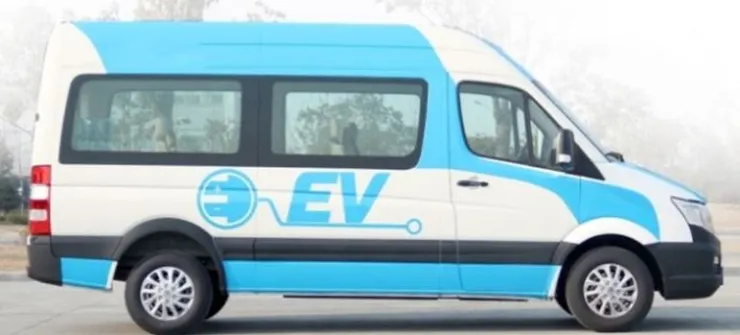Following its clinching of the award of Nigeria’s Electric Vehicle Company of the Year at the recently concluded Nigeria Auto Journalists Association (NAJA) Awards in Lagos, JET Systems has said it is committed to Nigeria’s auto mobility future.
On February 9, 2023 inside the Oriental Hotel, Victoria Island, Lagos, Jet Systems Automobile Industries Limited recieved the Nigeria Auto Journalists Association (NAJA) ‘Electric Vehicle Company of the Year’ award.
Responding to his company’s emergence as the Electric Vehicle Company of the Year award, Sanjay Rupani, director of sales and marketing stated, “We are delighted to have received the Nigeria Auto Journalists Association (NAJA) award. We interpret this recognition as a challenge to accomplish more in terms of development and innovation”.
The director of sales and marketing also disclosed that Jet Systems has set out ambitious plans in years to come to ensure the transformation in E- mobility space is intensified across Nigeria.
Part of these plans he said is to promote the adoption of E-mobility in Nigeria and educate the public on electric vehicles (EVs). “We will also encourage relevant stakeholders such as governments at various levels, financiers, investors, general public, and the other assemblers to come together and develop the policies that will promote the systems.
Jet Systems Automobile Industries Limited also plans to introduce more products that will meet different needs of mobility options at a budget-friendly price, in addition to innovating to provide energy solutions as it relates to electric vehicles.
Sanjay Rupani identified the target audience of Jet Electric Vehicles in the country to include all ministries, departments and agencies (MDAs) of government, corporate entities, schools, transport companies and other logistics support providers.
He expressed hope that some of the impediments towards vehicle electrification in Nigeria such epileptic power source, high acquisition cost is high, lack of government initiatives to encourage and promote the adoption of EV and inadequate charging infrastructure can be addressed.
In his reaction, Oluwemimo Osanipin, chief operating officer (COO) of the company reflected on some of the constraints facing automotive assemblers in Nigeria. He identified such bottlenecks to include inconsistent government policies as it relates to the auto industry, poor infrastructure for instance, the power supply.
The COO also frowned at the cost of funding in Nigeria which he noted is extremely high and as much as 28 percent annually.
Osanipin regretted that apart from the current duty structure in the country that is unfavorable for assemblers, the hydra-headed problems of multiple taxes, porous border that facilitates the influx of gray importation remains a major concern that hampers auto assemblers bottomline.
The COO declared that the expectations of electric vehicle assemblers from the federal government should be to initiate policies that will encourage people to invest in EVs and also improve the use of EVs.
Furthermore, he wants government to offer consumers and assemblers incentives that will aid the speedy adoption of EVs, (both financial and non-financial). He called on the government to improve the policy that supports local raw material production and infrastructure.
Jet Systems electric vehicle is the first fully locally-made electric vehicle to run on the Nigerian road. The new electric vehicle was made to have zero emissions and is eco-friendly.





